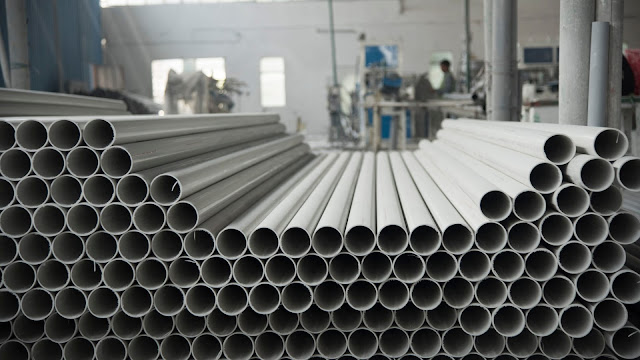PVC Pipes Market Industry: Challenges and Opportunities in the Forecast Period
The PVC pipes market industry is expected to face both challenges and opportunities in the forecast period, driven by various factors such as market dynamics, technological advancements, and evolving customer demands. Understanding these challenges and capitalizing on the opportunities will be crucial for manufacturers to stay competitive and drive growth in the industry.
One of the significant challenges
for the PVC pipes market industry is the volatility in raw material prices. PVC
pipes are primarily made from polyvinyl chloride resin derived from fossil
fuels, and fluctuations in oil and gas prices directly impact the cost of
production. Manufacturers must navigate these price fluctuations and manage
their supply chain effectively to maintain profitability.
The global
PVC pipes market is estimated to surpass US$ 76.5
billion by the end of 2028 in terms of revenue, exhibiting a CAGR
of 5.9% during the forecast period (2021 to 2028).
Another challenge is the
increasing competition in the market. The PVC pipes industry is highly
competitive, with numerous players operating globally and regionally. To stand
out in a crowded market, manufacturers need to differentiate themselves through
product innovation, quality, and customer service. Building strong
relationships with customers and providing customized solutions will be crucial
to gain a competitive edge.
Environmental concerns and
sustainability are emerging challenges that manufacturers need to address.
While PVC pipes offer advantages such as durability and cost-effectiveness,
there is growing awareness of the environmental impact of PVC production and
disposal. Manufacturers must focus on implementing sustainable practices, such
as using recycled materials, reducing energy consumption, and promoting proper
disposal and recycling of PVC pipes, to meet the expectations of
environmentally conscious customers and comply with regulatory requirements.
On the other hand, several
opportunities lie ahead for the PVC
pipes Market industry. Rapid urbanization, infrastructure development,
and investments in water management systems are expected to drive the demand
for PVC pipes. The growing need for reliable and efficient piping solutions in
sectors such as construction, agriculture, and water supply presents
significant growth opportunities for manufacturers.
Technological advancements also
offer opportunities for the industry. Innovations in PVC pipe manufacturing
processes, such as advanced extrusion techniques and formulation advancements,
enhance production efficiency and product quality. Manufacturers that embrace
these advancements can gain a competitive advantage and meet evolving customer
demands for high-performance and sustainable PVC pipes.
Furthermore, the adoption of
smart water management systems and the integration of IoT (Internet of Things)
technologies in infrastructure projects create opportunities for PVC pipes with
embedded sensors and monitoring capabilities. These smart pipes can provide
real-time data on water flow, pressure, and quality, enabling efficient water
management and maintenance.
In addition, the growing emphasis
on water conservation and the need for sustainable solutions present
opportunities for manufacturers to develop PVC pipes that promote efficient
water usage and minimize environmental impact.
The PVC pipes market industry
faces both challenges and opportunities in the forecast period. Manufacturers
must navigate the challenges posed by raw material price fluctuations,
competition, and sustainability concerns. At the same time, they should
capitalize on the opportunities arising from infrastructure development,
technological advancements, and evolving customer demands. By addressing these
challenges and embracing opportunities, manufacturers can position themselves
for growth and success in the dynamic PVC pipes market industry.




Comments
Post a Comment